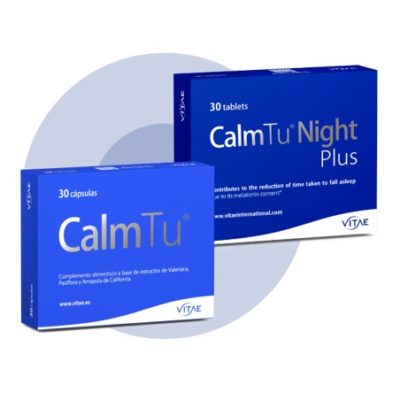Feeling tension in your body when your mind won’t rest is more common than you think. Anxiety doesn’t only affect you emotionally—it also manifests physically, creating discomfort that can interfere with daily life. Among these, muscle pain caused by anxiety is one of the most frequent.
In this article, you’ll discover what this pain is, why it occurs, its most common symptoms, how long it can last, and how to relieve it naturally to restore your well-being.
What is muscle pain caused by anxiety?
Pain from anxiety is real, even if it doesn’t come from a physical injury. When we’re anxious, the body activates the sympathetic nervous system, which triggers the “fight or flight” response. This mechanism increases muscle tension to prepare the body for action.
The problem arises when anxiety becomes chronic: the tension doesn’t release and turns into pain, stiffness, or even spasms, affecting areas like the neck, back, shoulders, and jaw.
Symptoms of muscle pain caused by anxiety
Anxiety-related pain varies from person to person, but there are clear signs showing that the physical discomfort is linked to emotional tension. The most common are:
Muscle stiffness and tension
Muscle stiffness from anxiety feels like constant tightness in the neck, shoulders, and back. In prolonged cases, this can lead to painful muscle knots, especially in the trapezius area.
Involuntary muscle spasms
These are sudden or repetitive twitches that occur without conscious control. Anxiety overstimulates the nervous system, which can trigger these spasms, often in the eyelids, arms, or legs.
Tingling and cramps
Small “electric shock” sensations or stabbing pains are common during stress. They’re harmless but uncomfortable and can appear anywhere from the eyes to the feet.
Generalized pain in the back, arms, and legs
A stressful day, long hours at the computer, or an intense argument can leave you with pain in your back, arms, or legs. This happens because muscle tension isn’t released and accumulates throughout the body.
Full-body muscle pain
When anxiety is intense and prolonged, muscle tension spreads and causes generalized pain. You may feel physically exhausted, as if you’d exercised continuously.
Causes of anxiety-induced muscle pain
Anxiety-related muscle pain has a clear physiological basis. The main causes are:
Sympathetic nervous system and stress response
When you perceive a threat—real or imagined—the body activates the fight-or-flight response. This increases muscle contraction, heart rate, and overall tension. If this reaction persists, muscles can’t relax.
Altered posture and breathing
Anxiety often causes shallow breathing and posture changes that keep the body tense, especially in the limbs. Staying hunched or rigid for long periods worsens pain.
Inflammation and prolonged pain
Chronic anxiety raises cortisol levels, the stress hormone. Excess cortisol contributes to inflammation and heightens pain perception, sometimes leading to neuropathic pain even without physical injury.
How long does anxiety-related muscle tension last?
Duration depends on factors such as the intensity of anxiety, frequency of episodes, and the body’s recovery capacity.
In mild cases, tension may fade in hours or days, especially with relaxation techniques. Chronic stress, however, can make it last for weeks or months.
Factors that influence duration:
– Level of anxiety and accumulated stress
– Physical condition and muscle predisposition
– Sleep quality and rest
– Healthy habits (exercise, relaxation, nutrition)
How to relieve anxiety-related muscle pain
Exercise, stretching, and breathing
– Gentle stretches for the neck, shoulders, and back
– Moderate physical activity: walking, swimming, yoga, or Pilates (30 min/day)
– Deep breathing to relax muscles and calm the nervous system
Therapeutic massage and physiotherapy
– Deep tissue massages relieve tension in critical areas
– Specialized physiotherapy: manual techniques and guided exercises for mobility and relaxation
Nutrition and supplements
Include foods rich in magnesium, potassium, and omega-3 (fatty fish, nuts, leafy greens).
Stay hydrated and avoid excess caffeine and alcohol.
Complement with natural supplements:
MagVita: six magnesium salts + B6 and taurine for muscle function
Vitalivio: collagen, N-acetylcysteine, and CoQ10 for joints and tissues
FlexiVita Pro: glucosamine, turmeric, and zinc for joints and tendons
CalmTu: valerian, passionflower, and poppy for emotional relaxation
How to relieve back pain from anxiety
– Apply local heat (heating pads, warm compresses)
– Stretch lumbar and dorsal areas
– Avoid prolonged static postures
– Practice diaphragmatic breathing to reduce tension
Preventing anxiety-related muscle tension
– Take active breaks every 2 hours if sitting for long periods
– Maintain good posture at work or when using your phone
– Prioritize restorative sleep (7–8 hours daily)
– Include regular exercise and relaxation techniques
When to see a doctor for anxiety-related muscle pain
Consult a professional if:
– The pain lasts more than two weeks
– It worsens or limits movement
– It’s accompanied by fever, weakness, or loss of strength
Frequently Asked Questions
What symptoms indicate muscle pain from anxiety?
Stiffness, tingling, diffuse pain, or spasms in the neck, shoulders, and back during stress periods.
How long can anxiety-related muscle pain last?
From hours to weeks, depending on anxiety level and use of relaxation techniques.
Can anxiety cause tingling sensations?
Yes. It results from nervous system overload and muscle tension.
How can I relieve back pain caused by anxiety?
Apply heat, stretch, improve posture, and practice mindful breathing.
Can anxiety-related muscle tension affect the legs?
Yes, especially with prolonged sitting or shallow breathing.
Why do muscle spasms appear with anxiety?
Due to nervous system activation and involuntary muscle discharges.
What natural supplements help reduce muscle tension from anxiety?
Magnesium, vitamin B6, tryptophan, and relaxing herbs such as valerian. Options include Magnesium6, Vitalivio, FlexiVita Pro, and CalmTu.
When should I see a doctor for muscle pain?
If it lasts more than two weeks, worsens, or includes severe symptoms.










